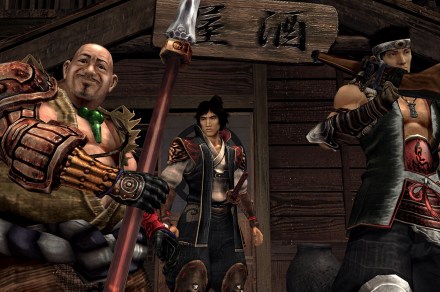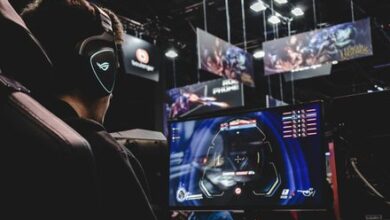Onimusha 2 Remaster: A Nostalgic Journey to Gaming’s Golden Age!

“They don’t make them like they used to.”
This phrase frequently enough annoys me as a film enthusiast. For years, I’ve heard it used to criticize modern cinema. It seems silly to me. Of course, things change over time. Art and the methods of creating it evolve. What frustrates me more is when this saying is used against contemporary films,suggesting that older works are inherently superior. This mindset shows a stubbornness toward change.
Reflecting on 2002
Recently, I revisited Capcom’s remaster of Onimusha 2: Samurai’s Destiny. Playing this classic from the PS2 era in 2025 felt like unearthing an ancient relic. It serves as a unique time capsule that stands apart from any new game I've experienced this year. The blend of it's cinematic goals and the limitations of video games back then creates an atmosphere that's hard to replicate today.
I never owned a PlayStation 2 growing up but was familiar with Onimusha through gaming magazines like EGM. To me, it seemed larger than life—akin to other iconic titles such as Shadow of the Colossus. The magazine images painted a picture of a dark action game that resembled what I now see in Elden Ring.
The moment I started playing Onimusha 2: Samurai’s Destiny, I was struck by its opening narrative—a dramatic introduction revealing Nobunaga Oda's death and his command over demons delivered with utmost seriousness, which made me laugh out loud at its absurdity.
A Unique Tone and Style
This tone persisted throughout my gameplay experience. Capcom aimed high for 2002; they wanted to create something cinematic long before technology could fully support it. If you were to watch this as a movie, you might call it “amateur.” The script features cheesy jokes where characters express exaggerated admiration for women while cutscenes use awkward camera angles that feel misplaced at times.
The voice acting has an energy reminiscent of high school theater performances.
This combination is surprisingly enjoyable.
This mix between humor and seriousness reflects Capcom's respect for their lore while also embracing silliness—a balance not commonly found in many modern games today.
This tone isn’t exclusive just to cutscenes; it's evident during gameplay too.
The design clearly follows trends set by Resident Evil's success with fixed camera angles building suspense by concealing dangers around corners.
Rooms filled with puzzles require solving before revealing hidden paths or items while text descriptions pop up plainly on screen providing context about your surroundings.
....
A Different Gaming Experience Today
this design approach creates an atmosphere that's both specific yet tough to articulate—it's eerie even during lighthearted moments.I’m not merely escaping into another world; instead I'm navigating through one shaped by someone else's vision where rules dictate my survival much like wandering through foggy hedge mazes.
Today’s major titles lack this feeling entirely—or so it truly seems! Developers have mastered crafting “cinematic” experiences raising standards across acting writing cinematography leading us towards digital realms grounded within recognizable human visuals.
Even recent entries such as Dynasty Warriors: Origins have shifted away from quirky performances opting instead for more relatable narratives compared against earlier installments showcasing oddball antics.
Playing< em > Onimusha 2 feels akin watching classic hollywood dramas characterized stage-like performances grand gestures.
The Value Of Nostalgia In Gaming remakes
That nostalgia fuels excitement surrounding current remakes & remasters! While playing< em > Onimusha 2 reminds us how different game design has become since its original release two decades ago—it showcases quirks defining past eras unlike those seen within newer titles aiming polish above all else!
Capcom wisely kept adjustments minimal here offering improved resolution controls auto-save features (though sometimes frustrating). Extras include galleries preserving original charm allowing appreciation without altering core experience —an adventure still lingering long after finishing unlike many fleeting releases today!
this doesn’t imply that< em > Onimusha 2 surpasses contemporary masterpieces nor do I beleive no modern film can rival classics such as Gone With The Wind! Instead revisiting highlights differences shaping designs evolving over years establishing immersive storytelling prioritizing player agency rather than rigid directionality.
I anticipate seeing what Capcom brings forth regarding upcoming revival projects likely resembling customary third-person action-adventure formats boasting blockbuster production values reflecting their own era just like how we view past gems now!
Perhaps future generations will reminisce fondly about these experiences claiming today's offerings pale compared against those birthed during legendary PS5 days ahead!
Such reflections woudl indicate progress made within medium itself reminding us why we shouldn’t cling tightly onto yesteryear but embrace ancient documents showcasing artistic landscapes present back then!
The remaster offers perfect prospect travel back into early aughts soaking up all eccentricities marking creative peaks witnessed throughout gaming history!
The remastered version launches May twenty-third available across multiple platforms including PS4 Xbox One Nintendo Switch PC among others!





